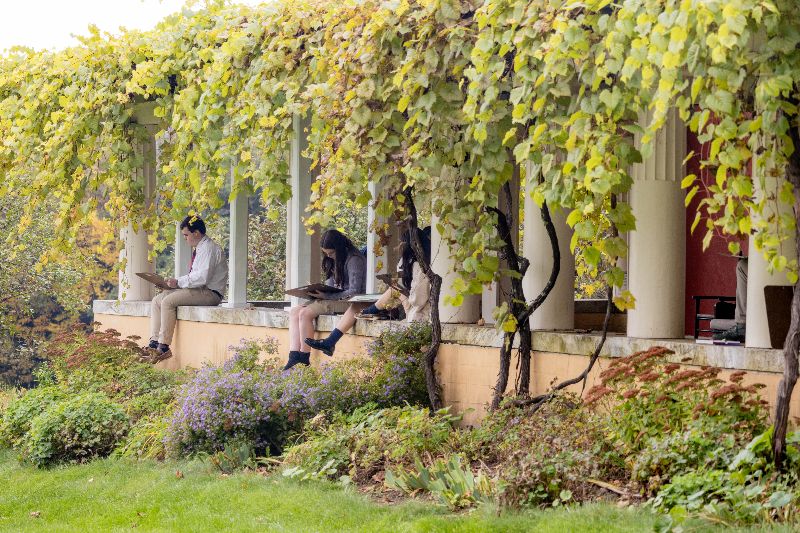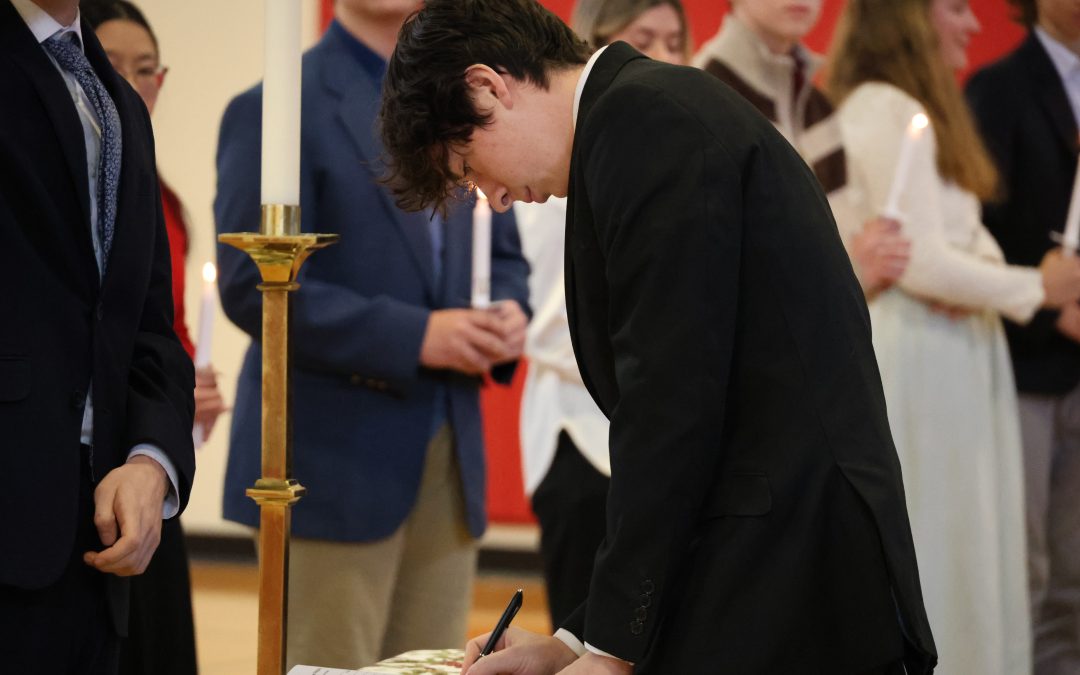
In the world of classical education, we frequently refer to the three transcendental values of truth, beauty, and goodness. We build curricula, lesson plans, and enrichment activities around them with the intention of filling our students’ hearts and minds with these universal attributes of being.
The Greek philosophers, Plato and Aristotle, viewed these cosmic values of truth (that which defines reality), goodness (that which fulfills its purpose), and beauty (that which is lovely) as objective and knowable. Human beings experience fulfillment through these transcendental values because we have the capacities of logos (reason), ethos (morality), and pathos (emotion), which correspond perfectly to these attributes:
- Logos corresponds to truth
- Ethos corresponds to goodness
- Pathos corresponds to beauty
When we view these elements from a Christian perspective, we know that God instilled these values into his creation, including into the hearts of the human race, because these transcendentals are part of God himself. God doesn’t have truth, goodness, and beauty; rather, God is truth, goodness, and beauty. As the philosopher Peter Kreeft puts it: “When God created, he imbued the cosmos with truth, goodness, and beauty. Everything that exists is in some way true, good, and beautiful. And humans via the imago Dei (image of God) are able to know the truth, desire the good, and love the beautiful.”
The natural desire and attraction human beings experience for truth, goodness, and beauty are an integrated part of our human anthropology. As a modern people, I believe we naturally and pragmatically accept that truth is an essential component of a good education. We also recognize goodness as a desirable quality to be imparted to our youth. But it seems that the value of beauty is frequently underrated and deemed as unnecessary and extraneous to a serious education. To believe this is to misunderstand the basic nature of a human being, most especially that of a child. The arts speak vividly to the heart and mind in ways unreachable by other medium.
With these thoughts in mind, we planned our first annual “Day of Beauty” for our high school students at St. Gaudens National Historic Site in Cornish, NH. This event brought together several elements of our students’ classical education into an integrated experience. Students first got a tour of the grounds, including some of St. Gaudens’ more well-known sculptures. Since St. Gaudens idolized Abraham Lincoln, and was commissioned to create a sculpture of the beloved president, we were also treated to a history lesson by our knowledgeable tour guide.
Students then rotated between three activities: an art experience illustrating the natural beauty surrounding the Cornish Colony, a nature study scavenger hunt that had them exploring the beautiful grounds, and a moving poetry and writing exercise inspired by the Shaw Memorial, depicting the 54th Massachusetts Regiment, the first regiment of African Americans from the North to serve during the Civil War, who bravely assaulted Battery Wagner in Charleston Harbor.
Miss Dajka enhanced the atmosphere with her well crafted renditions of Civil War tunes on her violin; the beautiful strains drawing the attention of tourists and other patrons of the park, as well as providing the perfect accompaniment for the writing exercise for our scholars.
Throughout the day, students were interested and engaged in the activities. As an educator, it was supremely rewarding to hear them connect their classroom learning to the field experience. They recognized artworks and artists, and were able to expound on the abundant historical elements at the site. The US History teacher was particularly pleased to see his students notice elements of the Gilded Age, which they had just covered in class. We all enjoyed a lovely experience of joyful discovery – classical education at its finest. It was indeed a Day of Beauty. – Mrs. Lisa Sweet, Academic Dean



